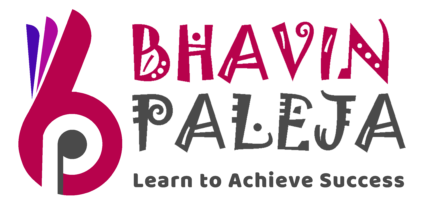
MySQL
Duration: 2 Months
Fees: ₹ 5000/-
Batch Time: 2 Hours from Monday to Saturday
Contact for Available / Preferable Batch Timings (Also for weekends)
Course Description
SQL (Structured Query Language) is a popular domain-specific language used for managing and querying relational databases. SQL is commonly used by developers, data analysts, data scientists, and database administrators to interact with databases and retrieve, manipulate, and manage data. A SQL course typically covers the following topics:
Introduction to SQL: This covers the basics of SQL, including its history, syntax, and common data types. Students will learn how to write SQL queries to perform CRUD operations (Create, Read, Update, Delete) on databases.
Database Design and Normalization: This covers the principles of database design, including entity-relationship (ER) modeling, normalization, and database schema design. Students will learn how to design efficient and scalable databases that adhere to best practices.
SQL Querying: This covers the various SQL clauses and commands for querying databases, including SELECT, FROM, WHERE, GROUP BY, HAVING, ORDER BY, JOIN, and more. Students will learn how to retrieve data from one or more tables, filter data, aggregate data, and sort data using SQL queries.
Data Manipulation: This covers the SQL commands for inserting, updating, and deleting data in a database, including INSERT, UPDATE, DELETE, and transaction management. Students will learn how to modify data in a database and ensure data integrity.
Advanced SQL Topics: This may include advanced topics such as working with views, stored procedures, functions, triggers, and working with complex data types. Students will learn how to optimize SQL queries, create database objects, and automate tasks using SQL.
Database Administration: This may include topics related to managing and administering databases, such as user management, security, backup and recovery, performance tuning, and troubleshooting. Students will learn how to maintain and secure databases and ensure their smooth operation.
Practical Applications: Many SQL courses also include practical exercises, projects, or case studies that allow students to apply their SQL skills in real-world scenarios. This may include working with sample databases, building database-driven applications, and solving real-world data-related problems.
Upon completing a SQL course, students can gain skills to work with relational databases, perform data analysis, and work with databases in various industries such as finance, healthcare, e-commerce, marketing, and more. SQL is a fundamental skill for anyone working with data and databases, and learning SQL can open up opportunities in data-related roles, including database administrator, data analyst, data scientist, and database developer, among others.
Course Eligibility
A SQL course is beneficial for individuals who are interested in or working in the following roles or fields:
Aspiring Data Professionals: Individuals who are interested in pursuing a career in data management, analysis, or related roles can benefit from learning SQL. This includes students, recent graduates, or career changers who want to enter the field of data management or analysis.
Database Administrators: Database administrators or DBAs who are responsible for managing and maintaining databases can benefit from learning SQL to enhance their skills in designing, implementing, and managing databases efficiently and securely.
Data Analysts: Data analysts who work with data on a regular basis can benefit from learning SQL to effectively query and analyze data from databases, generate reports, and derive insights from data for decision-making purposes.
Data Scientists: Data scientists who work with large datasets and need to extract, transform, and load data for analysis and modeling can benefit from learning SQL as it is a common language used in data integration and manipulation.
Database Developers: Database developers who design, develop, and maintain databases can benefit from learning SQL to enhance their skills in writing stored procedures, functions, triggers, and optimizing database performance.
Business Intelligence Analysts: Business intelligence analysts who create reports, dashboards, and visualizations for data-driven insights can benefit from learning SQL to effectively extract and analyze data from databases and data warehouses.
Data Engineers: Data engineers who design and implement data pipelines, ETL processes, and data integration workflows can benefit from learning SQL as it is commonly used in data integration and transformation tasks.
Data Consultants: Data consultants who provide data-related consulting services to organizations can benefit from learning SQL as it is widely used in data modeling, database design, and data analysis tasks.
Overall, anyone who works with data or is interested in pursuing a career in data management, analysis, or related roles can benefit from learning SQL to effectively manipulate and analyze data stored in databases.
Course Opportunities
Completing a SQL course can open up various career opportunities in the field of data management and analysis. Some of the common career opportunities for individuals with SQL skills include:
Database Administrator: Database administrators are responsible for managing and maintaining databases, ensuring data integrity, security, and performance. SQL skills are essential for database administrators to design, implement, and manage databases efficiently and securely.
Data Analyst: Data analysts use SQL to query and analyze data from databases, generate reports, and derive insights from data. SQL skills are crucial for data analysts to manipulate and analyze large datasets and generate meaningful insights for decision-making.
Data Scientist: Data scientists use SQL to extract, transform, and load (ETL) data from databases for analysis and model building. SQL skills are important for data scientists to query and manipulate data for machine learning, statistical analysis, and data visualization.
Database Developer: Database developers use SQL to design, develop, and maintain databases, including creating database schema, writing stored procedures, functions, and triggers, and optimizing database performance. SQL skills are critical for database developers to design and implement efficient and scalable databases.
Business Intelligence Analyst: Business intelligence analysts use SQL to extract and analyze data from databases to support business decision-making. SQL skills are essential for business intelligence analysts to create reports, dashboards, and visualizations for data-driven insights.
Data Engineer: Data engineers use SQL to design and implement data pipelines, ETL processes, and data integration workflows. SQL skills are crucial for data engineers to extract, transform, and load data from various sources into databases or data warehouses.
Data Consultant: Data consultants provide data-related consulting services to organizations, including data modeling, database design, data integration, and data analysis. SQL skills are important for data consultants to work with databases and analyze data to provide valuable insights to clients.
These are just some of the career opportunities available for individuals with SQL skills. SQL is widely used in various industries and organizations, including finance, healthcare, e-commerce, marketing, technology, government, and more. With SQL skills, individuals can pursue rewarding careers in data management, analysis, and related roles.
Course Syllabus
Structured Query Language (SQL)
Introduction To SQL
Data Retrieval Techniques
Working with DDL Commands
Working with DML Commands
Integrity Constraints
Built in Functions
Data Aggregation
Importance Of JOIN
Set Operators and Pseudo Columns:
Sub Queries
Database Transaction and Security
Design of Schema ObjectsExamination
Course FAQs
Q: What is MySQL?
A: MySQL is an open-source relational database management system (RDBMS) that is widely used for storing, retrieving, and managing data in databases. It is a popular choice for web applications and is often used in combination with PHP, Python, or other programming languages for building dynamic websites and web applications.
Q: What is a MySQL course?
A: A MySQL course is a structured learning program that teaches individuals how to use MySQL for database management. It covers topics such as database design, SQL (Structured Query Language), data types, queries, transactions, indexing, database normalization, stored procedures, and more. MySQL courses may be offered as online classes, in-person classes, or through self-paced learning platforms.
Q: Who is a MySQL course suitable for?
A: A MySQL course is suitable for beginners who have little or no experience with databases, as well as for experienced developers who want to learn MySQL for database management. It is also suitable for web developers, database administrators, software engineers, and anyone interested in building data-driven applications using MySQL.
Q: What are the prerequisites for taking a MySQL course?
A: The prerequisites for taking a MySQL course may vary depending on the specific course and its level. However, generally, a basic understanding of programming concepts such as variables, data types, and control flow can be helpful. Familiarity with SQL (Structured Query Language) or other database concepts can also be beneficial, but not always required as MySQL courses may cover these topics from scratch.
Q: What can I expect to learn in a MySQL course?
A: In a MySQL course, you can expect to learn the fundamentals of MySQL, including database design, SQL syntax, data types, queries, transactions, indexing, normalization, stored procedures, and more. You may also learn about best practices for database management, performance optimization, and working with tools and technologies related to MySQL, such as PhpMyAdmin, MySQL Workbench, or ORMs (Object-Relational Mapping).
Q: How long does a typical MySQL course last?
A: The duration of a MySQL course can vary depending on the specific course and its format. Some courses may be completed in a few weeks, while others may take several months. It may also depend on the pace of learning and the amount of time you are able to dedicate to studying and completing assignments.
Q: What are the benefits of taking a MySQL course?
A: Taking a MySQL course can provide several benefits, including:
Acquiring a valuable and in-demand skill in database management using MySQL, which is widely used in the industry.
Enhancing your career opportunities in fields such as web development, database administration, and software engineering.
Gaining the ability to design, create, and manage databases efficiently using SQL and MySQL.
Understanding key concepts and best practices in database design, normalization, indexing, and performance optimization.
Developing problem-solving and critical thinking skills through practical database exercises and projects.
Building a solid foundation for further learning and specialization in other database management systems and technologies.



